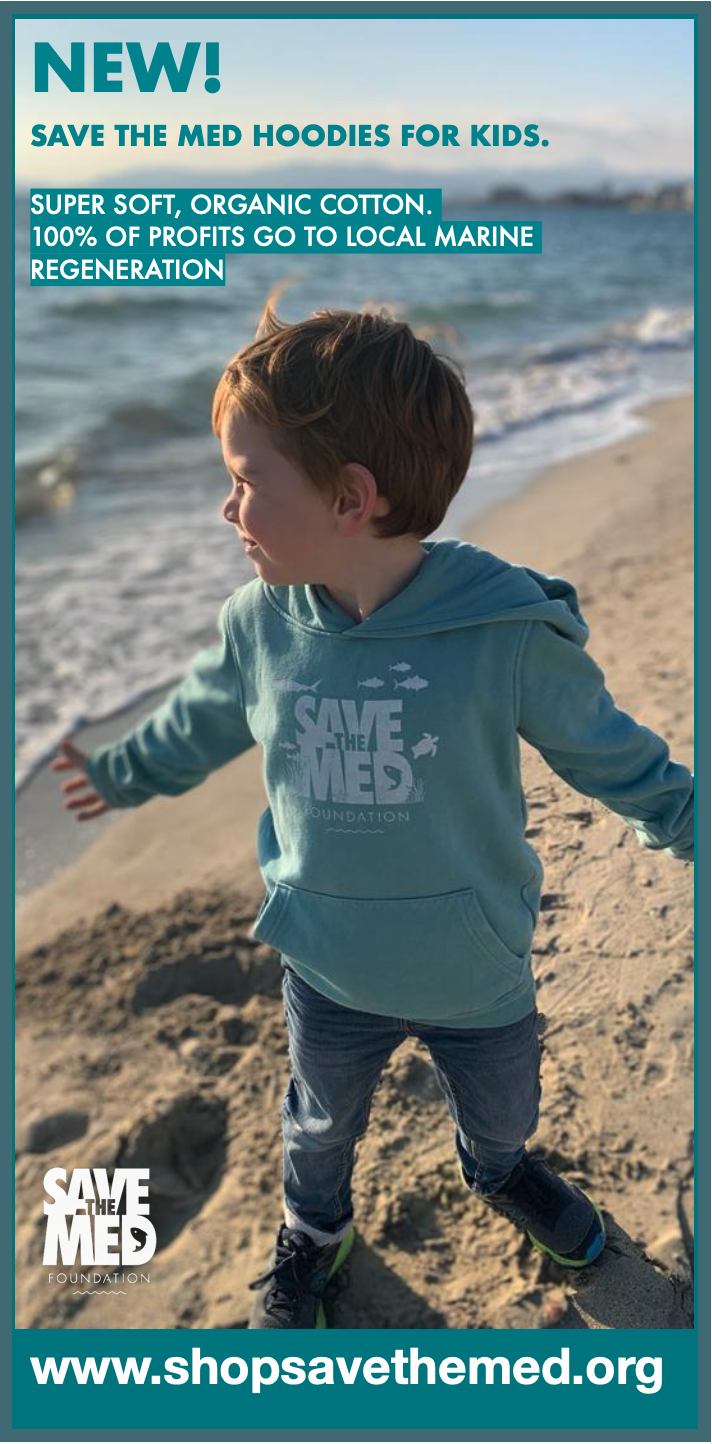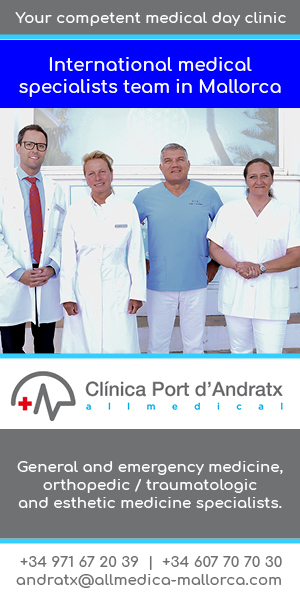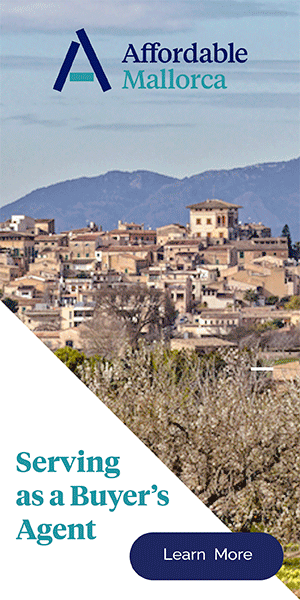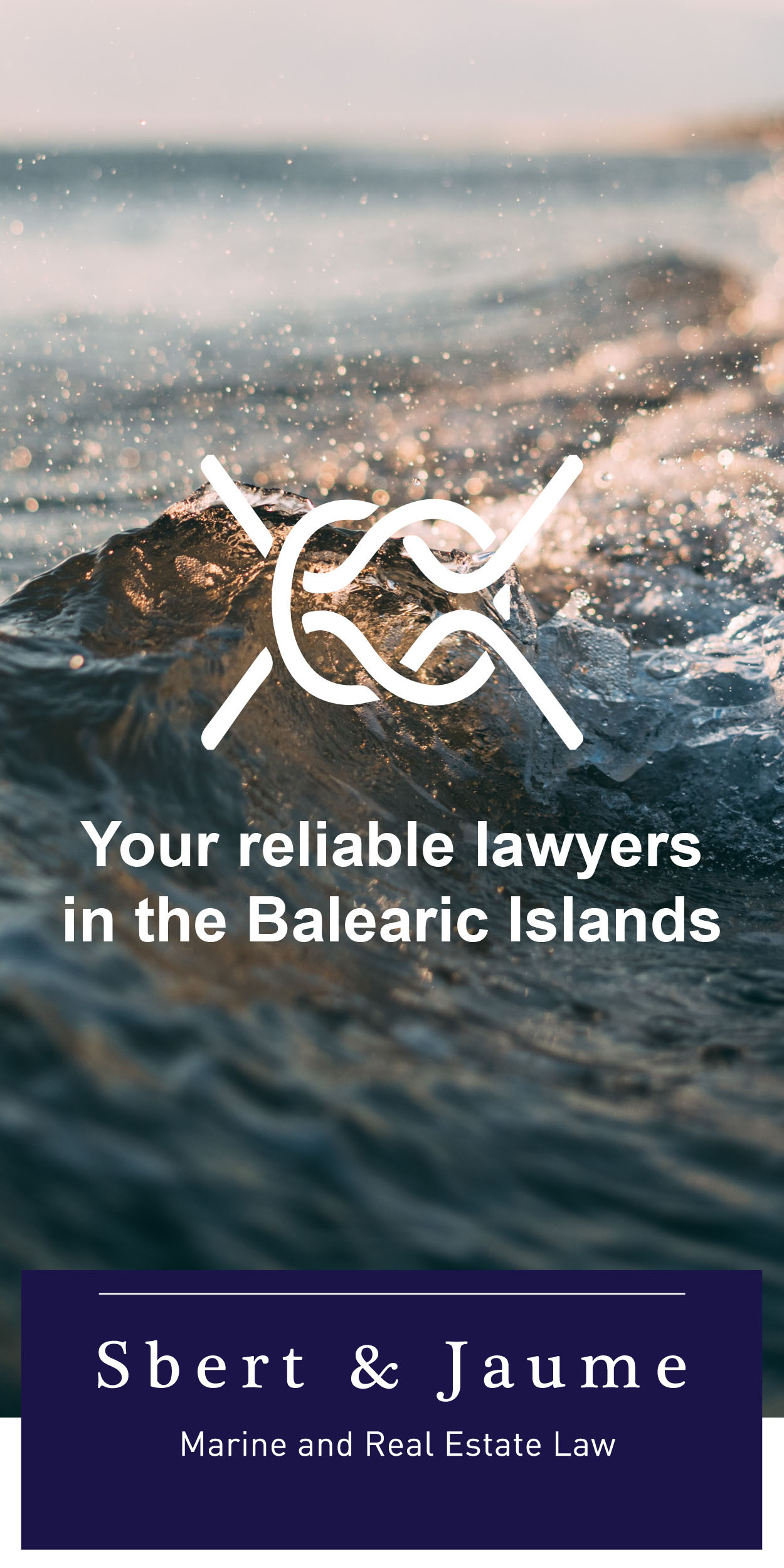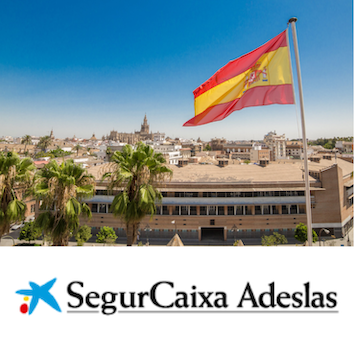“One love. One blood. One life. You got to do what you should. One life with each other, sisters and my brothers. One life, but we're not the same. We’ve got to carry each other, carry each other.” – “One” by U2
Unless you have been hibernating in a desert island, by now you know that the virus officially known as COVID-19 hit the world stage in a dramatic way this past winter. This has affected the world in ways we probably won’t be able to accurately assess until it’s all over, but even now, we are seeing ripples of the chaos this contagion is creating.
Wuhan, China, the epicentre, has re-opened after months of quarantine. Italy is slowly releasing its lockdown and the UK is predicting that 20%+ of their workforce will become ill. Europe is slowly opening up but each country is taking its own approach. The Balearic Government is working with the German government to re-establish regular flights so that our largest market of tourist and second-home owners will return to spend money. Read more >> [link to Economic article]]
Mallorca, along with the rest of the world, is in economic meltdown mode, as the usual 20 million visitors from over 120 countries are now debating whether to cancel their holiday plans and just stay home.
Affordable Mallorca will share the latest facts about COVID-19 to help you manoeuvre past the panic and take a sensible approach to keeping you, your loved ones, and the public at-large healthy.
The Numbers #
So many people keep saying, ‘put things in perspective.' Ok, let’s do that. As of Cinco de Mayo, Worldwide cases are at 3.58MM, 1.17MM recovered and 252k deaths. In Spain, 219k confirmed infected, 123K recovered and 25,613 deaths. These are only confirmed cases. Remember that the tests are not 100% reliable and many are unable to be tested. This is up from six weeks ago when there were 139,065 COVID-19 cases globally and 5,116 deaths and counting.
Even with the daily updates by government sources detail these numbers, many people are still continuing to push against quarantine measures put in place to guard the safety of the healthcare systems.
Without the info provided by the media, people would be flying blind on this and many unnecessary infections could occur. On the other side, too much info turns people into crazies and sets them on end-of-days-type food/medicine/face mask buying and hoarding sprees, shunning neighbours with a sniffle out of fear.
By following known cases, the estimate is that 80% of the cases of COVID-19 have been mild, though the more severe forms can lead to pneumonia, so prudence is required. More than a few rational people are spouting off a mortality rate of .004%. This is completely untrue no matter whose numbers are used. Each country will have a different mortality rate because each country is imposing regulations to restrict movement, contain community spread and support healthcare facilities and workers to not be overwhelmed.
The Science: What we know #
Scientist are learning more daily about the novel coronavirus.
- The human body has never seen this virus before; hence, the name „novel“
- Asymptomatic people spread the virus through visible and invisible droplets
- Coughing, sneezing or simply rubbing the nose of an infected person then the person either contaminates the air or surface of objects where the virus lives for up to 2 days (from what is currently known)
- People congregating in a contained and highly contaminated environment are more likely to be infected.
A scientist friend, who worked on the United States of America Dept of Defense EBOLA team in Liberia, described COVID-19 this way:
“This is a RNA virus. Viruses are not living things. They are genetic material wrapped in a protein "coat." They can't replicate without taking over a cell of a living organism...plant, fungi, animal, etc. The "spikes" on the surface ("Spike-"or "S-proteins" in this case, and scientists thought made it look like a crown, hence "corona") are receptors that act like a key to gain entry into the cell. That "lock" is a receptor site on the cell surface...a receptor usually used by the cell for normal physiologic activity.
If there is a very precise fit, the S-protein attaches to that cellular receptor, "unlocks" the cell, and the virus gains entry. The virus then unleashes its RNA into the cell. The RNA (or DNA in a DNA virus) "codes" (like a software program) processes that take over the cell's metabolic machinery to make components of, and package new, active virus.
So, the cell can't do its normal metabolic work. The viral RNA hijacks the cell's normal protein and genetic material production mechanisms to create new virus. Then, the cell dies and releases huge numbers of new viral particles into the host's body, and the cycle continues and amplifies as increasing numbers of cells are invaded. Anti-viral drugs like Remdesevir are aimed at blocking viral replication. Problem is, those drugs are best used EARLY when viral loads are smaller and there is less cellular damage.
The reason this virus is so "bad" is that it's "novel," meaning our immune systems have never seen it before. Our immune systems (the body's "burglar alarm" and "SWAT teams" and "fire departments" all rolled into one) just aren't alerted. So the virus pillages freely (for lack of a better, more precise and complicated immunological description).
DNA virus are likewise not living, just a different type of genetic material. Make no mistake, SARS-CoV-2 is a master replicator. All viruses work by invading and hijacking cells with the weird, singular purpose of making more of themselves. Creepy."
Many people are following community health guidelines. Most countries have imposed mandatory mask wearing in public. This is important since transmission probability is only 1,5% from a carrier with a mask to a healthy person with a mask. Asymptomatic people who do not know they have been infected either due to lack of a reaction to the virus or still in the incubation stage can infect anyone in their paths.
Actualities #
COVID-19, the name given by the World Health Organization, started at the end of last year. It is believed to have been transmitted by a virus spread by bats in a rare case of a virus being able to leap the barrier between animal and human, similar to theories about EBOLA spread. This is called a spillover event. After that, the virus spreads from person-to-person, potentially affecting a large number of people.
Spain's Government is working to mitigate the disasterous effects of COVID-19. They are slowly re-opening society and negotiating with Germany to determine phases of allowing travel abroad. This will be a time-consuming process that will have stops and starts since additional waves of infections are anticipated in both countries.
For a free global map link in real time of virus locations, click here >>Coronavirus Dashboard
Chances of Catching COVID-19 #
The WHO has announced that COVID-19 looks “very much like” a global pandemic but the Director General says it can be controlled. “The decisions we make can affect the trajectory of this epidemic,” he said recently. Each country needs to make certain simple and reasonable measures to protect their citizens and people in other countries.
Finding, testing, treating and isolating cases make common sense. Ways to do this include not traveling to places where the infection is widespread, steering clear of large indoor gatherings, avoiding close contact with anyone showing signs of illness, covering mouth and nose when sneezing, regular hand washing, and wiping down frequently touched objects in the workplace and at home… and yes, as the spread of the virus grows, additional intermittent lockdowns may be necessary. But many are starting to believe that it is better to suffer this short-term inconvenience than to have two years or more of fear and uncertainty.
Masks are NOT deterrents. This may surprise many, but they will not save people from contracting COVID-19. While they are useful, the virus is highly contagious and virulent since it can live on hard surfaces for days
Symptoms and Treatment on Mallorca #
What started as COVID-19 looking like the flu, and, for most people, acting like it as well, those symptoms have changed to horrible headaches, chest and heart pains and extreme fatigue. Still others are having strokes and requiring ventilation with the survival rate not much higher than 20% once put on a ventilator.
Doctors are seeing younger people with no pre-existing illnesses have sudden turns in health and die in days. For those such as the elderly, babies and infants, those with compromised immunity systems, heart and lung disease or people who suffer from general respiratory weaknesses, the risk of developing a severe case is higher. The extreme precautions taken by governments are to protect all of us since most people look quite healthy until an event like this so no one can truly assess who will or will not fall ill.
There is no specific treatment, folks. This is one you simply have to ride out for the most part. Of course, if you find yourself with flu-like symptoms and respiratory distress, persistent chest pain or pressure, confusion, or bluish face or lips, call your doctor toute de suite. Do NOT just turn up at a health centre, as you could infect dozens of people, making things significantly worse for your community.
Do NOT ingest disinfectant or hydroxycholoquine (anti-malarial treatment) contrary to the United States Government’s suggestion these methods will protect someone.
If you have been in a high risk area and you have the symptoms, you are obliged to call 061 for guidance on your next steps. This is not to single you out, but to keep you and others safe.
Mallorca has four major hospitals and most major villages have a PAC. We are working on a comprehensive guide to Healthcare on the island that will include a map with all locations. Please check with us at Ultimate Guides for a complete listing.
Mallorca Impact #
Now that the facts have been laid out, plotting a rational course using the tips above to prevent catching or spreading COVID-19 is the best way forward.
Understandably, people are reacting to the latest news. According to a recent report by The Olive Press, “villas rentals are being cancelled and hotel bookings are down on the island, with people in the hospitality business putting it down to coronavirus fears.”
Events and conferences are being postponed or cancelled, including a convention expected to see 500 guests hosted by Italian multinational Luxottica Group. The Spanish Society of Glaucoma also cancelled their event at the Palacio de Congresos as authorities feared having this many medical professionals together in one place. The Government is making pro-active decisions to limit the risk to the general public.
But potentially harmful things are still falling through the cracks. For example, as some flights are being cancelled, cruise ships from other parts of the Mediterranean are not suspended. This means that thousands of untested people are walking freely around the island at any given time, possibly unwittingly spreading the virus.
In addition to the loss of business generated by the events, the Mallorca Hotel Business Federation has stated that there will be a knock-on effect with regard to employment. Many hotels have decided not to open until Easter or after. Therefore, the majority of temporary contracts are now being postponed, with start dates moving from April to the summer, affecting the livelihood of many people.
Some of the hotels that are open or planning to open will be running special pricing for guests. This is great for those who would love to enjoy the warmer Mediterranean climate without the hordes of tourists.
At the end of the day, we would never tell people whether they should risk travelling or not. What we can say is don't cancel travel plans out of fear. Contact your villa rep or hotel and ask for real-time updates on the situation here. If it’s not safe, no one would encourage you to come, even if it meant losing the business. A healthy guest is a happy one. And on the flip side, owners don’t want a hotel that’s been turned into a makeshift hospital trying to attend to the needs of their sick and disappointed clientele.
The economic impact could be huge, and not just on the island but worldwide. Globally, it is estimated that if the virus worsens, by April the airlines will lose US$23 billion or a total of USD$113 in 2020. A total of USD$2.7 Trillion – with a “T” - could be lost, according to Bloomberg Financial.
This could spell catastrophe for global and local economies, which include many small businesses who can ill-afford to take the hits. Spain's Prime Minister Pedro Sanchez is working with his cabinet on health and economy solutions related to the effects of the virus.
What Should You Do? #
It can’t be stressed enough that fear-based decisions don’t serve anyone well. So, what should you do if you have visitors planning to come, pending holidays or business trips you’re meant to make?
Assess each event individually. If your friends are coming from an infected area, ask them to postpone for your safety, as well as that of others. The virus may not be affecting certain locations now but when traveling, people must be aware that rules can change hourly. They may find themselves stuck in a place they didn’t expect for a far longer time than anticipated. While endless holiday sounds good on paper, the reality is that bank accounts don’t refill themselves and being stranded someplace, even someplace as amazing as here could turn into an undue burden.
Trips from here hold the same rules, only in reverse. Why would anyone walk into the lion’s den willingly? They wouldn’t, so follow suit and don’t go to China on business or to Thailand on holiday. They’ll keep. Nothing is worth risking your health or that of your family, friends and community.
Like most things in this life, COVID-19 too shall pass…hopefully before the start of the summer season. But even if it doesn’t, just be vigilant and don’t take silly risks and likewise, don’t let worry be your master.
I wouldn’t recommend taking a cruise anytime soon, though.
Last Thought #
We are not recommending that you travel or not. However, we do recommend a few helpful suggestions that you should consider regardless of quarantines, pandemics or whatever comes your way.
- Keep a 3-week supply or more depending on circumstances of your medications on your person..
- If you have special needs, make sure those are written out by you and/or your doctor and kept with those medications. In some more extreme cases, otherwise asymptomatic people have been become incapacitated within hours, which makes providing clear instructions close to impossible in a distressed situation.
- Put ICE (In Case of Emergency) contact on your mobile phone and in your wallet. If you do not have next of kin, make it a close friend. If you don't have one of those, time to get out and make a few.
- Keep a bottle of water with you. If traveling, learn to take an empty refillable canister with you and make certain the container is NOT larger than 100ml, even if it's empty as officials may confiscate it. Fill it up after you have gone through passport control. Or you can buy water for 1,50€ at a vending machine. This is helpful when supplies might run low. Dehydration does not need to be added to your list of woes.
- Lastly, when you sit down, introduce yourself to the person next to you. But this time, don‘t shake hands. Do the new “thing“ and elbow bump. You have more than a few thousand 'friends' out there. You just haven't met them all yet.
“The decisions we make can affect the trajectory of this epidemic,” Director Generale, WHO
Sources
- The verge.com
- Theguardian.com
- Majorcadailybulletin.com
- Washingtonpost.com
- Theolivepress.es
- Bloomberg.com
- CDC.Org
- Euractiv.com
- https://www.washingtonpost.com...
By Memphis Holland
6 May, 2020










